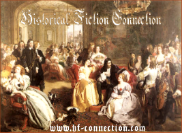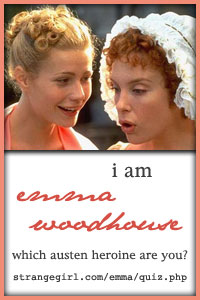4 roses
Of all Gregory's novels, this one and TOBG are at the top of my list. I was surprised that I really
 enjoyed this novel as I tend to lean in the Anne Boleyn corner. This was the first novel solely about Katherine of Aragon that I ever read and I really liked the way she was portrayed. I never, under any circumstances, thought she was a horrible person or anything like that - I just have always tended to side with Anne. This novel really opened my eyes to what Katherine's life might have been like and has allowed me to feel sorry for the horrible way she was treated by Henry towards the end of her life. As is the case with all Gregory's works (and all historical fiction authors), I know there are cases where creative license is taken with historical fact but, at least in this book, this doesn't take away from the story at all. There is nothing here that really seems out of place or "over the top" unbelievable.
enjoyed this novel as I tend to lean in the Anne Boleyn corner. This was the first novel solely about Katherine of Aragon that I ever read and I really liked the way she was portrayed. I never, under any circumstances, thought she was a horrible person or anything like that - I just have always tended to side with Anne. This novel really opened my eyes to what Katherine's life might have been like and has allowed me to feel sorry for the horrible way she was treated by Henry towards the end of her life. As is the case with all Gregory's works (and all historical fiction authors), I know there are cases where creative license is taken with historical fact but, at least in this book, this doesn't take away from the story at all. There is nothing here that really seems out of place or "over the top" unbelievable.The story covers Katherine's (Catalina) life from her childhood in Spain through her marriage to Prince Arthur, his death and her six years of being a "hostage" of Henry VII, her marriage to Henry VIII, and her defeat of the Scots King in 1513. Obviously Gregory doesn't go into the story surrounding Anne Boleyn's arrival of court and the upheaval she caused since that is covered in TOBG but she does make a short mention of it from Katherine's perspective as she heads into Blackfriars Hall for the "trial" in 1529.
Little Catalina is raised knowing that one day she will go to England and marry the heir, Prince Arthur. She is even called the Princess of Wales from a very young age and believes it is her destiny to become Queen of England. She loves her mother Isabella dearly and truly believes that she and God really work together. When she finally arrives in England (the scene where Henry VII demands to see her, arguing with her duenna Dona Elvira is wonderful) and sees her husband-to-be she feels she will be happy. It is not long after that Arthur begins to treat her harshly because of his injured pride and her haughtiness. It takes an extremely cold ride in a horse litter with Catalina coming close to death to make him see how foolish he had been. After that, their love story is quite touching. They fall in love while at Ludlow Castle and begin to enjoy planning how they will rule England once they are King and Queen. I thought it was very touching how she wanted to show Arthur the styles and customs of her country and how he enjoyed learning about them. I also had to give them a cheer for secretly disobeying Margaret Beaufort's rules about how often they should be together as man and wife. Tragedy does strike when Arthur dies but before he does, he makes Catalina swear a promise that changes the course of English history. It was very touching to see how devoted they became to each other and it was painful to see how much Catalina prayed for his recovery.
Once back at the King's Court, Catalina becomes a pawn between her father and Henry VII. She is kept in this limbo for over six years. During that time she gains the King's wrath because she turns him down when he proposes to her. He then gets his revenge by agreeing to marry her to the new heir, Henry, but never allowing the marriage to take place. Catalina is reduced to poverty while waiting for her future to be decided. This was one of the first times I did feel sorry for the Princess as she was trapped because she was only seen as a useful pawn in politics. She does eventually end up marrying Henry VIII once he becomes King and finally feels that she is where she was destined to be - Queen of England - and insists on going by the English version of her name from that point on. The rest of the story is fairly common knowledge - the many miscarriages, stillbirths, and the birth of the Princess Mary. It was heartbreaking to see how the death of their little prince affected Katherine. During all this, Katherine really begins to grow and mature and begins to realize that maybe her mother wasn't right about everything, as she thought as a child. She also comes to realize that Henry is not going to be faithful and she knows that any pretty young girl could turn the King's head, hoping to gain his affection and possibly supplant her. It is an eerie prophecy of things yet to come. The last major event in the story is Katherine's triumph over the Scottish King. It was quite interesting to see her go through all the steps needed to muster and equip not only her husband's army bound for France, but the one she held back knowing the Scots where a danger. I think this really showed Katherine at her best and is one of the reasons why the English people loved her so much.
This really was a well written and intriguing story. Katherine tends to get lost in all the drama surrounding Henry VIII and Anne Boleyn and it was refreshing to see another side of this Queen. The plot moved along well and I never felt bogged down in details or events. It really was a touching love story through the first half of the book. The characters in this telling were interesting and had personality - you could like them at times and dislike them at others. This was even the case with Katherine; while I liked her throughout the story there were some times when her stubbornness in believing it was her destiny to become Queen of England got a bit old, though I don't see it as being "out of character" for her. Gregory's portrayal of Henry VII was also very interesting. While I don't know if there is anything recorded in history of Henry actually desiring the Princess, it certainly was fun to read about him trying to conceal his feelings for her and then his happiness when he thought he would be able to marry her. The way he treated her after her refusal was horrible but to be expected from him so it wasn't surprising.
Overall a really good book and one that I reread from time to time. The characters are engaging enough so I care about what happens to them. It is easy to get caught up in the story and enjoy it as well. I would say this is one of Gregory's best works, along side TOBG. I would recommend this to anyone interested in the time period, especially to those who have read TOBG so they can compare their feelings towards Katherine in the two novels.
**Something else I found interesting in this story are the occasional references to Elizabeth of York's relationship with Richard III. Since Gregory's current series of novels covers that period of English history it will be interesting to see if these chance comments fit with what is eventually in those newer novels.























I think that my favourite part of this book was the very beginning. In so much Tudor fiction, Catherine is the wronged wife and we don't often get to see where she came from, and the kind of people who parents were, which must have shaped her own actions - her stubborness, her piety etc!
ReplyDelete